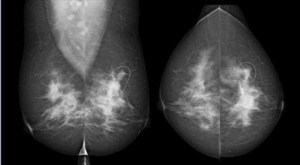by
Lauren Dubinsky, Senior Reporter | August 04, 2014
From the July 2014 issue of HealthCare Business News magazine
When it comes to breast cancer screening, what works for one woman might not work for another. Mammography has been the gold-standard for many years, but experts are starting to realize that in some cases, additional screening with other technology is needed.
“Mammograms aren’t perfect and they certainly do have a decreased ability to pick up cancers in certain women, but there are ways that we’re improving,” says Dr. Jennifer Drukteinis, radiologist and director of breast imaging research at Moffitt Cancer Center.
It’s becoming more apparent that a personalized approach to breast cancer screening is needed that takes into consideration a woman’s age, risk and breast density.



Ad Statistics
Times Displayed: 45731
Times Visited: 1370 MIT labs, experts in Multi-Vendor component level repair of: MRI Coils, RF amplifiers, Gradient Amplifiers Contrast Media Injectors. System repairs, sub-assembly repairs, component level repairs, refurbish/calibrate. info@mitlabsusa.com/+1 (305) 470-8013
Newer modalities, including contrast-enhanced spectral mammography, tomosynthesis, automated whole breast ultrasound, molecular imaging and MR, are broadening the options but the unanswered question is — how do providers determine which is the best screening option for the individual? Some hospitals are implementing personalized breast screening programs and making strides in that direction, but it’s still unclear what exactly the future of breast cancer screening will look like.
Getting more personal
NorthShore University HealthSystem in Illinois is one of the pioneers in taking a more personalized breast cancer screening approach.
In May, they launched their High Risk Breast Program after receiving a donation from the North Suburban Healthcare Foundation.
“We wanted to develop a program where any women could really come in and have her risk for breast cancer assessed because obviously it’s on the minds of a lot of women in the United States,” says Barb Guido, the program’s nurse practitioner.
Three of their hospitals currently have the program and they are working on bringing it to their fourth hospital in the near future.
Women enrolled in the program receive a health and family history evaluation and undergo a clinical breast exam and statistical risk models to identify their risk of breast cancer.
Once they collect all of that information, they stratify risk and place the women into certain categories. “We may see a woman that has an increased risk and depending on the level of risk then we make some recommendations about what things would be appropriate and develop a very personalized breast health care plan dependant on that,” says Guido.
The health care plan can range from recommending additional screening with a breast ultrasound or genetic testing, to helping women make lifestyle changes such as decreasing the amount of alcohol they drink and increasing their physical activity.

